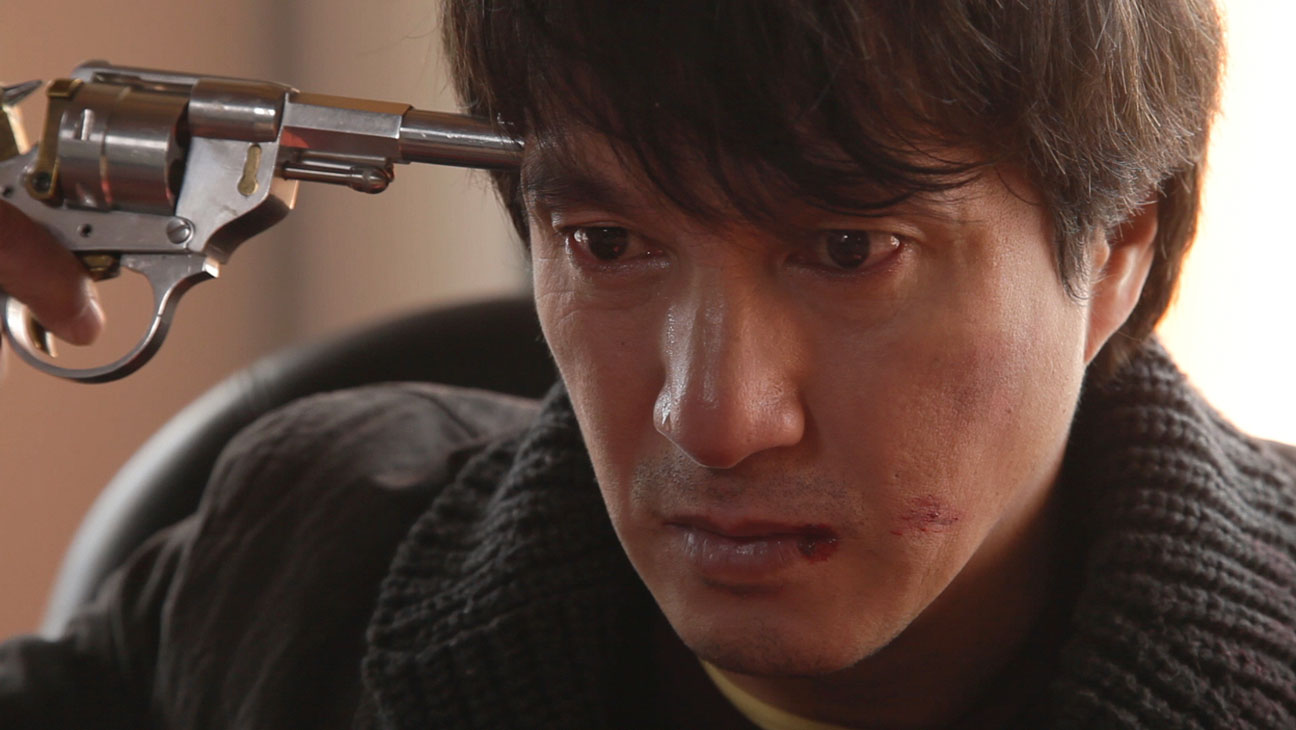Ordinarily, one might expect that a total absence of dialogue would be the most distinctive element of a movie made in the 21st century. Rest assured this is not what you will be talking about should you venture out to see Kim Ki-duk’s Moebius, a film that blithely dallies in multiple outrages and borderline-unbearable horrors. The South Korean filmmaker has proved himself adept at projects both delicate (Spring, Summer, Fall, Winter . . . and Spring) and wild (Pieta), and in either mode he can seem like a scientist demonstrating a preordained theory. His ideas are sharp, but the execution sometimes sterile.
The skill is still on display in Moebius, even if the film’s watchability is a distinct issue. It opens with a jealous wife (Lee Eun-woo) attempting to castrate her philandering husband (Cho Jae-hyun) while he sleeps; unsuccessful at this effort, she turns the knife on her teenage son (Seo Young-ju). (The characters are not given names.) The father determines to undergo self-mutilation in order to provide his son with a replacement organ; meanwhile the son undergoes bullying and begins an ill-fated fixation on the woman with whom his father was having an affair. (She’s also played by Lee, a casting decision that doubles the creepiness.) From there, it’s only a short hop to genital-transplant surgery, rape, incest, and—just in case anybody might be in danger of losing the thread—more castration. All of which would be impossible if Moebius were played as straight drama. But Kim gives it an undercurrent of wacko ludicrousness, although the actors are completely straight-faced.
In the course of all this, Kim swings at some provocative notions about the subject of family horror and the nature of power. I think that material struggles to find traction against the rampant ugliness on display—but the wordlessness is interesting. It feels like an affectation in the early reels, a labored device. At some point it becomes haunting, as though we’re watching these fragments of scenes—having somehow missed the dialogue—while the encounters have been boiled down to the brutal business of staring, slapping, or worse. The people do make sounds, but only at a bestial level: grunts, screams, groans. That’s a soundtrack to an intriguing experiment, but here I suspect it’ll get lost in the film’s bloody carnival. Runs Fri., Aug. 29–Thurs., Sept. 4 at Grand Illusion. Not rated. 89 minutes.
film@seattleweekly.com







